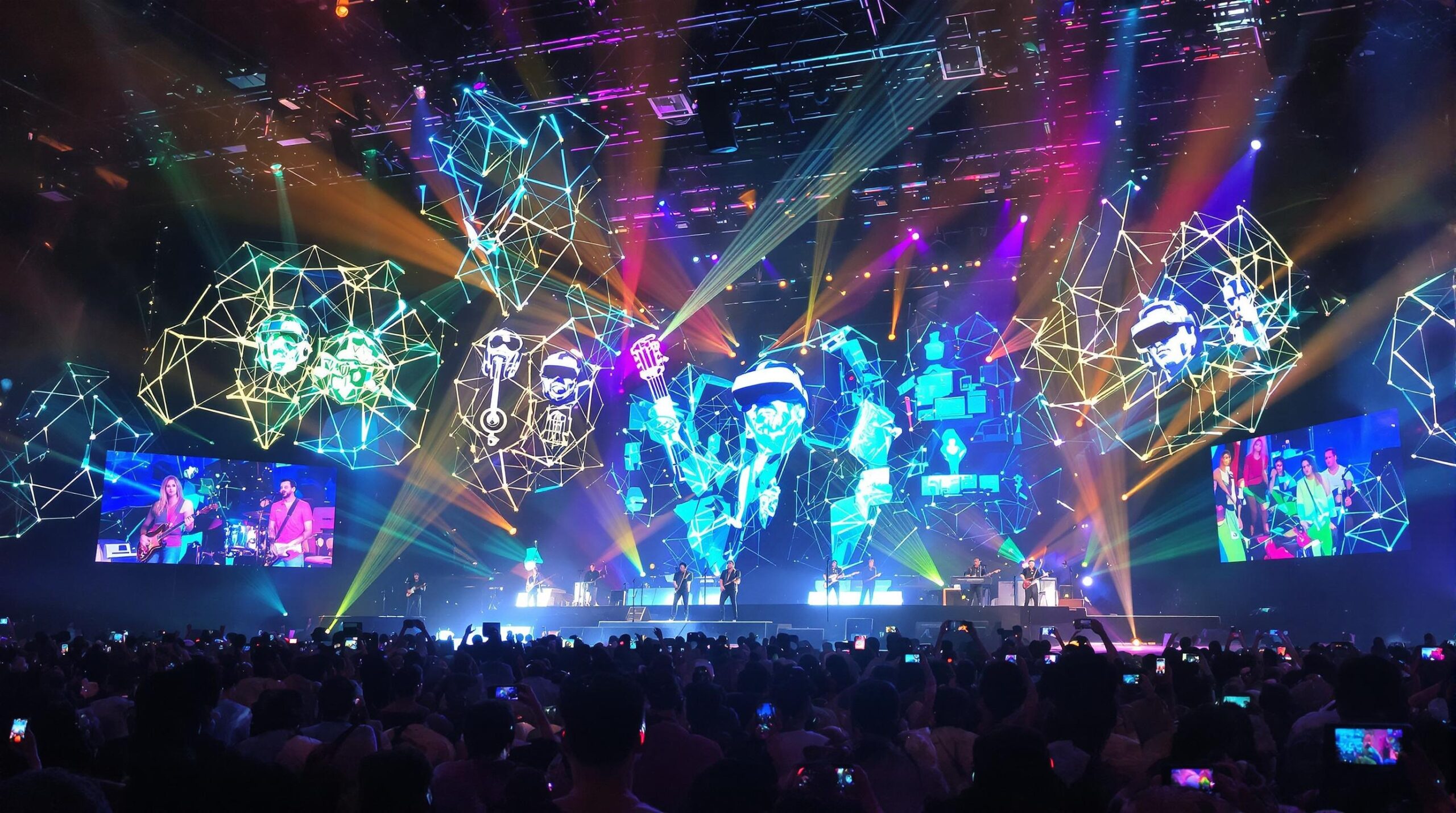Virtual reality (VR) technology is significantly impacting live concert experiences. This technological advancement allows fans unprecedented access and interaction. VR is reshaping how audiences participate in music events, making them more immersive and accessible.
Enhancing Audience Engagement
VR technology introduces novel ways for fans to engage with live concerts. Concert-goers can now attend events from the comfort of their homes, allowing audiences worldwide to experience performances without the limitations of geographical constraints. VR headsets offer a 360-degree view, creating a sense that the viewer is at the venue.
Major artists and event organizers recognize VR’s potential to enhance audience enjoyment. By incorporating virtual elements, they provide fans with unique perspectives unavailable in traditional settings. Viewers can switch between various vantage points, including onstage, front row, and even backstage, creating a fully customized experience.
Another engaging feature of VR concerts is the interactive elements they offer. Fans can interact with virtual avatars of fellow concert-goers, replicating the communal feel of live events. Musicians are also starting to incorporate interactive elements in their performances. This interactivity can include virtual meet-and-greets, exclusive behind-the-scenes footage, or real-time responses to audience input. The possibilities are continuously expanding.
Accessibility and Inclusivity
Virtual reality concerts break down barriers for fans who might otherwise be unable to attend live events. Physical disabilities, financial constraints, or geographical limitations often hinder concert attendance. VR technology provides a more inclusive platform, enabling those who cannot travel the opportunity to enjoy live music.
Cost-effective VR concerts offer a more affordable option than traditional shows, opening doors to a broader audience. Ticket prices for virtual events are often cheaper, eliminating expenses such as travel and accommodation. As a result, people who previously could not attend live concerts can now partake in the excitement.
For fans with disabilities, VR concerts provide the necessary accommodations for an enjoyable experience. This technology offers customized audio settings and visual enhancements, allowing full immersion. VR concerts ensure that all fans can participate and engage with the music.
Transforming the Business Model
Virtual reality technology is transforming the fan experience and altering the music industry’s business model. Artists and producers are continually exploring how VR can generate new revenue streams and opportunities for growth.
Virtual concerts allow artists to reach a global audience without the constraints and costs associated with traditional tours. This expanded reach increases their potential fan base, leading to greater exposure and brand growth. Artists can now perform to fans worldwide simultaneously, regardless of venue capacity limitations.
VR technology also opens new avenues for marketing and partnership. Brands can sponsor virtual concerts, integrating their products seamlessly into the digital environment. This new form of advertisement introduces unique and engaging marketing strategies while providing financial support to artists.
Technological Advancements and Innovation
The integration of VR into live concerts requires state-of-the-art technology and continuous innovation. Tech companies and music industry professionals must collaborate to deliver seamless virtual experiences. This partnership pushes the boundaries of technology, fostering innovation in both fields.
Advanced VR equipment, such as headsets and motion-tracking devices, is crucial in delivering an immersive experience. These devices must provide high-quality graphics, synchronized audio, and real-time motion capture to simulate a live event effectively. Ensuring a smooth VR experience demands sophisticated software development that enables seamless streaming and interaction.
Continued advancements in VR technology promise even more exciting possibilities for concerts. As artificial intelligence and machine learning evolve, concerts can become increasingly interactive and personalized. These tools allow the creation of virtual environments tailored to an individual fan’s preferences.
Challenges and Considerations
Despite its many benefits, virtual reality in live concerts presents challenges that need addressing. Ensuring technology accessibility and affordability remains a primary focus for industry stakeholders. High-quality VR headsets and equipment can be costly, limiting audience reach.
Furthermore, delivering a seamless experience on a global scale requires robust internet connectivity, which remains inaccessible in some regions. Organizations must invest in infrastructure improvements to address these limitations and ensure everyone benefits from VR’s offerings.
Another concern is the potential loss of the communal aspect of concerts. For many, attending a live event is about the shared experience with fellow fans. VR technology must continue to incorporate social elements, allowing fans to connect.
The Future of Concerts with VR
The growing adoption of virtual reality technology suggests it will play a crucial role in the future of live concerts. As technology advances, so will the creativity surrounding virtual concert experiences. Musicians, producers, and tech companies will work together to push these boundaries.
The music industry remains poised to capitalize on VR, delivering groundbreaking experiences that captivate and inspire fans. As the technology becomes more accessible and affordable, virtual concerts will become integral to live music experiences. The potential for creating inclusive and engaging spaces ensures the continued growth and adoption of VR concerts.
In summary, VR reshapes how fans consume and engage with live music. Its transformative impact is evident in enhanced audience participation, increased accessibility, innovative business models, and technological advancements. While challenges remain, they offer opportunities for improvement that will further drive VR’s growth in concerts. The future looks bright as VR redefines the live concert experience, setting the stage for exciting possibilities in the music industry.

